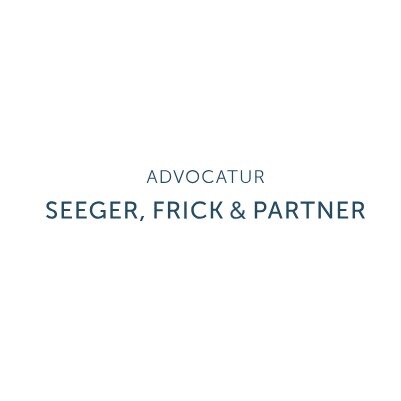Best Tax Increment Financing Lawyers in Schaan
Share your needs with us, get contacted by law firms.
Free. Takes 2 min.
List of the best lawyers in Schaan, Liechtenstein
About Tax Increment Financing Law in Schaan, Liechtenstein
Tax Increment Financing (TIF) in Schaan, Liechtenstein is a strategic economic development tool used to finance public infrastructure projects. TIF helps to stimulate growth and incentivize private investments in underdeveloped or economically challenged areas. By capturing future increases in property taxes generated by new development within a designated district, municipalities can fund necessary improvements without imposing additional tax burdens on current residents. In Schaan, TIF is particularly focused on sustainable urban development, improving local infrastructure, and enhancing the quality of life for its residents.
Why You May Need a Lawyer
There are several situations in which engaging legal assistance for matters related to Tax Increment Financing might be necessary. These include:
- Navigating the complexities of establishing a TIF district, including compliance with statutory requirements and local ordinances.
- Understanding the financial implications and benefit-sharing mechanisms within a TIF agreement.
- Negotiating with developers, local authorities, and other stakeholders involved in TIF projects.
- Addressing disputes or legal challenges related to project implementation, funding allocations, or tax assessments.
- Ensuring that the proposed use of TIF aligns with zoning laws and long-term urban planning goals.
Local Laws Overview
In Schaan, the legal framework governing Tax Increment Financing is built on several key components:
- TIF District Designation: The process requires detailed analysis of the area's development potential and existing conditions, ensuring the eligibility criteria are met.
- Public Participation and Transparency: Local laws emphasize community involvement and public hearings to gather input on proposed TIF projects.
- Financial Planning and Reporting: Comprehensive financial plans must be submitted, providing a clear breakdown of projected tax increments, intended uses, and anticipated outcomes.
- Regulatory Compliance: Strict adherence to both national and local regulations related to environmental standards, land use, and fiscal responsibility.
Frequently Asked Questions
What is Tax Increment Financing?
Tax Increment Financing is an economic tool that helps fund public projects by using future increases in property tax revenues from a designated area affected by development.
Who benefits from TIF?
Both the community and developers benefit: communities receive improved infrastructure and economic growth, while developers get incentives to invest in projects.
How is a TIF district established in Schaan?
A TIF district is designated following an evaluation process that involves assessing the area's development needs, potential economic benefits, and public hearings for transparency and community input.
Can TIF affect my property taxes?
No, TIF does not increase existing property taxes. It uses the increased revenue from property value appreciation due to development to fund infrastructure improvements.
What kinds of projects are typically financed through TIF?
Common projects include infrastructure improvements such as roadways, utilities, public transportation, environmental remediation, and other developments that stimulate economic growth.
How long does a TIF district last?
The duration of a TIF district can vary depending on the project scope but typically ranges from 15 to 30 years, after which the tax increment is released from its designation for general use.
Are there ongoing reporting requirements for TIF projects?
Yes, there are mandatory reporting obligations to ensure transparency and accountability, including regular financial reports and updates on project status and outcomes.
What happens if a TIF project underperforms financially?
In such cases, adjustments may be made to the financial strategy, and additional public or private funding sources might be explored to meet project goals.
How are disputes in TIF agreements resolved?
Disputes can be resolved through mediation, arbitration, or judicial proceedings, depending on the severity and nature of the issue.
Who oversees TIF in Schaan?
TIF projects are overseen by local government authorities, with input from financial advisors and legal experts to ensure compliance and successful implementation.
Additional Resources
For those seeking more information or legal guidance on Tax Increment Financing in Schaan, Liechtenstein, the following resources may prove valuable:
- Local Government Offices: These provide insights on current projects, regulatory requirements, and public hearings.
- Financial Advisory Services: Experts who can help navigate the financial intricacies of TIF projects.
- Legal Counsel: Lawyers specializing in municipal finance and development law can offer tailored advice and representation.
- Chamber of Commerce: Offers networking opportunities and information on business impacts of TIF initiatives.
- Community Meetings: Public forums where stakeholders can learn, ask questions, and give feedback on TIF activities.
Next Steps
If you are considering or involved in a Tax Increment Financing project and require legal assistance, here’s how to proceed:
- Identify Your Needs: Determine the specific legal services you require-be it consultation, compliance checks, or dispute resolution.
- Consult with Experts: Engage with an attorney experienced in TIF law to gain insights and advice tailored to your situation.
- Prepare Documentation: Gather necessary documents related to your project or issue to streamline the legal consultation process.
- Attend Public Meetings: Participate in local hearings and meetings to stay informed and involved in the process.
- Consider Financial Implications: Work with financial advisors to understand the economic impact of the TIF on your investments or contributions.
Lawzana helps you find the best lawyers and law firms in Schaan through a curated and pre-screened list of qualified legal professionals. Our platform offers rankings and detailed profiles of attorneys and law firms, allowing you to compare based on practice areas, including Tax Increment Financing, experience, and client feedback.
Each profile includes a description of the firm's areas of practice, client reviews, team members and partners, year of establishment, spoken languages, office locations, contact information, social media presence, and any published articles or resources. Most firms on our platform speak English and are experienced in both local and international legal matters.
Get a quote from top-rated law firms in Schaan, Liechtenstein — quickly, securely, and without unnecessary hassle.
Disclaimer:
The information provided on this page is for general informational purposes only and does not constitute legal advice. While we strive to ensure the accuracy and relevance of the content, legal information may change over time, and interpretations of the law can vary. You should always consult with a qualified legal professional for advice specific to your situation.
We disclaim all liability for actions taken or not taken based on the content of this page. If you believe any information is incorrect or outdated, please contact us, and we will review and update it where appropriate.









